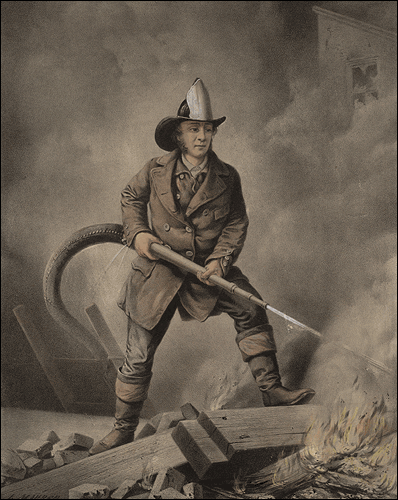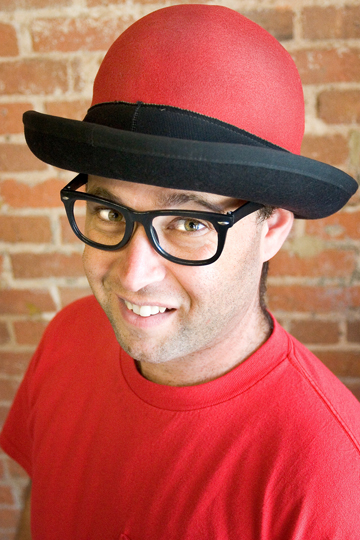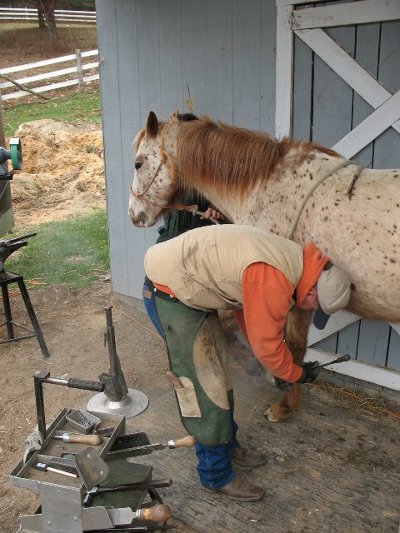
Once again we return to our So You Want My Job series, in which we interview men who are employed in desirable jobs and ask them about the reality of their work and for advice on how men can live their dream.
Anyone who has made a mix tape or a mix CD (what do kids do today in the age of the mp3?) knows well the joy in carefully choosing and putting together a selection of music for someone. Take that moment and multiply by a few hundred or thousand, and it’s easy to see why being a DJ is a desirable job for guys who love music and who love sharing it with others. To get paid to spin the tunes you’ve got to have a true passion and commitment to the job. You gotta be a DJ like JT Quik. Based in Kansas City, JT Quik has been DJing for a couple of decades and still loves his work. You can follow JT on Facebook and Myspace.
1. Tell us a little about yourself (Where are you from? How old are you? Describe your job and how long you’ve been at it, ect).
I was born in San Jose, CA and did a considerable amount of traveling with my stepfather in Europe before settling down in the midwest (he was stationed at Ft. Riley KS). There I got started at DJing when I was 14. I’m 34 now, so I’m just about at the 20 year mark.
2. Why did you want to become a DJ? When did you know it was what you wanted to do?
I always tell people being a DJ chose me. I loved music and just sitting around playing some tunes turned into a profession. I can’t think of a moment where I said, “This is what I want to do for the rest of my life.” It was just something I enjoyed so much that I would do just about anything to keep doing it.
3. How does a man learn the skills necessary to become a great DJ? Would you recommend attending a DJ school or is it something you can learn yourself with a lot of practice?
There are now many ways to learn the technical aspects of DJing either from the Internet or from a classroom but the real talent comes from practice. Ask any DJ and you will get the same answer; we all sucked at first and we practiced and practiced until we got better. Then, we practiced some more. For me this isn’t a chore; I can put some headphones on, get in a groove and completely lose track of time. It has to be a natural desire to want to improve one’s abilities.
4. How much does it cost to get a proper DJ setup and a good library of music?
DJ gear is expensive and the high end stuff is essential for guys like me. The main investment a good DJ makes is time (and money) invested in their music library. I spend hours nearly every day seeking out (or creating) new and exciting music for my listeners. Anybody can grab the top 100 songs off of iTunes and shuffle them and be no better than an overpaid ipod. Now, it’s ever more important to be innovative and willing to take risks with new music.
When I first started, everything was on vinyl and there were only so many pressings made; after they sold out you were out of luck. Next came CDs and the digital convenience of finding and downloading music off the Internet. Now most DJs use laptops to play music, and it has grown easier to build a standard music library. One thing about downloading music, most of it is not very good quality. I would not dare play a crappy sounding mp3 over a $100,000 sound system. If you want good clean copies of the latest tunes you have to pay for them-period-and it’s often $3-6 per track. The consideration of equipment cost is also a big factor; typically a good DJ setup costs $3000-$4000 not including a laptop or music.
5. There seems to be two kinds of DJ’s. The majority seem to work for a company that hires them out to do parties and other events. And then a few make a name for themselves, have a specific following, and work more like a freelancer. Tell us a little about these different tracks.
I do fall into the “freelancer” type of DJ. DJs in the side of the business that I’m in typically have an agent or two to handle their bookings rather than a company. I have a couple of guys that book me depending on the location of the event (out of town stuff). Most of the gigs I do come from my own footwork. When a DJ is a regular at a big nightclub it is called a residency-that could be every night, once a week, or once a month. I reside at a night club in KC a few times a month. This gives me the freedom to do a gig elsewhere (even competing establishments). The nice part of this arrangement is I know where SOME of my money is coming from in advance.
I have never worked for a DJ service so it’s hard to speculate as to the daily ongoings of that side of the business. The one thing I will say about being a freelancer that is great is I decide what I charge for a gig. This has two benefits. I can ask for what I think I’m worth; if they don’t want to pay that amount I probably don’t want the gig anyway. Also, if it’s something I do not want to do (say a wedding reception) I charge a super high rate and either it’s a way out for me or if they really want me I get a big paycheck for my troubles.
6. There’s a lot of competition in the DJ world. How does a DJ separate himself from the pack and move from doing bah mitzvahs to getting regular gigs at big clubs?
You are right competition is growing which means everyone has to work harder and harder. I keep going back to a quote I heard from the late DJ AM, “Find something you love to do so much you would do it every day for free. Then find someone to pay you to do it.” It’s this mentality that makes any artist, musician, actor, and DJ stand apart from the rest. It takes a serious attitude and a deep sense of self-confidence to stand up in front of a couple thousand people and play what you think they should be hearing. If your heart isn’t in it you will know it.
7. Being a DJ seems like a young man’s job. There aren’t too many 50 year old guys who are married with kids and still spinning the tunes. What does a DJ do when he gets older?
This is true and eventually it will be just a hobby as it started out. I have tried to diversify as much as possible. Doing some freelance A&R work for record labels, club management, you name it. Some day I will be way too old, but I have a feeling I will be doing something with just as much passion as I have for DJing.
8. What is the best part of your job?
I get to do what I love every day and have met some amazingly talented people. I get to see people enjoy music as much as I do. There really isn’t much better than that in my book.
9. What is the worst part of your job?
There are a ton of pitfalls in the business, least of which is the fact that you are in an environment where 95% of the people you are dealing with are drunk, high or a combination of both. Logic usually goes out the window fast, so you have to have a knack for dealing with people and staying focused on the task at hand. If my heart was not in it I probably would not have lasted past the shady promoters, occasionally getting stiffed, technical disasters, and random BS in general. But the good far outweighs the bad.
10. What’s the work/family/life balance like?
It’s tough. I was married once and I’m sure it had an impact. I do have friends that are DJs and have families. Those guys are like superheroes to me. Due to the time commitment it really takes a special kind of person to have a family and still do this. It also takes an incredibly supportive spouse to trust their significant other in this type of profession.
11. What is the biggest misconception people have about your job?
Most people think the work stops when you leave the building. I don’t have a 9-5 schedule; I’m always a DJ. Always be ready to build a relationship with a vendor, venue owner, or other DJ. I always have to be listening for that next tune that is going to fill the floor. I send myself notes all the time on my phone (songs I hear, ideas for remixes, etc.)
12. Any other advice, tips, or anecdotes you’d like to share?
Don’t be a poser. There are plenty of reasons one might want to be a DJ, but if you don’t absolutely love what you do you are probably going to wind up looking like a D-Bag and believe me this industry has enough of them already.
Tags: So You Want My Job






